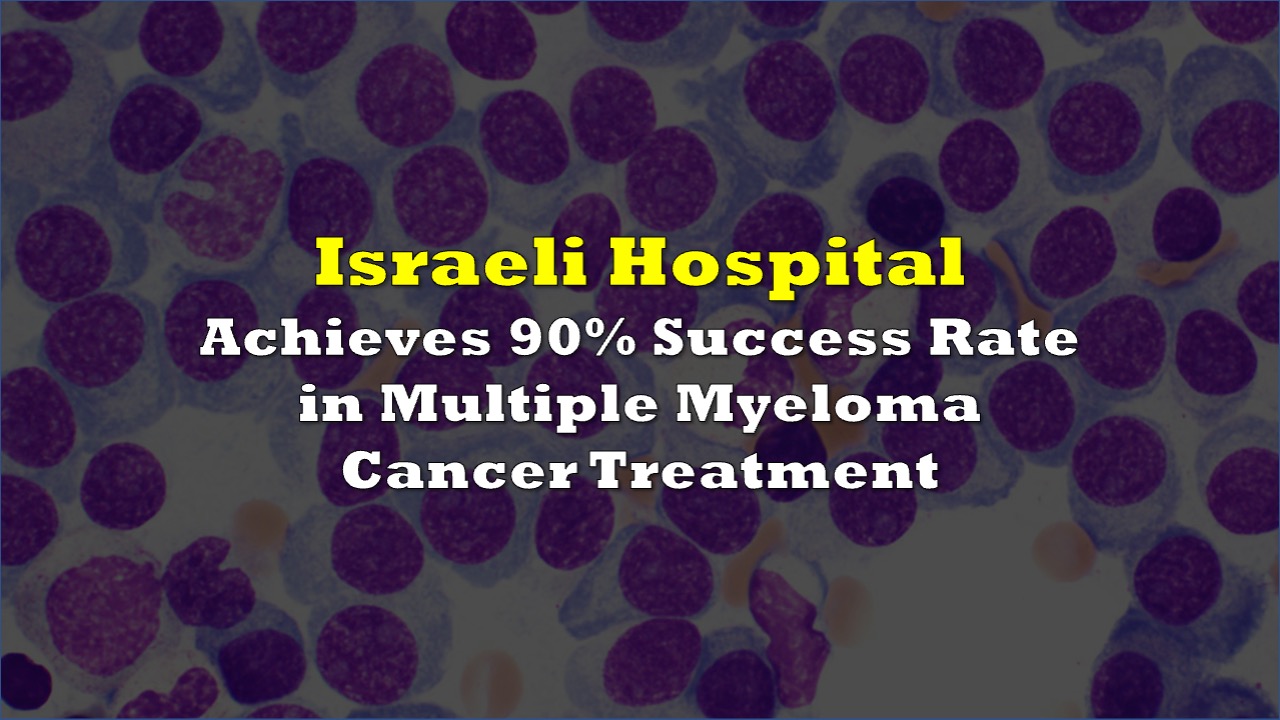In a groundbreaking development, Hadassah-University Medical Center in Jerusalem’s Ein Kerem has announced an “unprecedented achievement” in the treatment of multiple myeloma, the second-most common hematological disease, according to a report from the Jerusalem Post.
Led by Professor Polina Stepensky, the treatment is based on genetic engineering technology known as Chimeric Antigen Receptor T-Cell Therapy (CAR-T). CAR-T therapy harnesses the patient’s own immune system to target and destroy cancer cells.
This approach has yielded remarkable results, with more than 90% of the 74 patients treated at Hadassah experiencing complete remission.
“We have a waiting list of more than 200 patients from Israel and various parts of the world at any given time,” Stepensky told the Jerusalem Post. “Due to the complexity of the production and the complexity of the treatment itself, only one patient a week enters the treatment, which is still being conducted as an experiment.”
According to Professor Emeritus Yechezkel Barenholz, a world-renowned expert in oncology research, the CAR-T technology represents a major breakthrough that will simplify the diagnosis and treatment of multiple myeloma. The treatment was developed in collaboration with Professor Cyrille Cohen, head of the immunology and immunotherapy laboratory at Bar-Ilan University in Ramat Gan.
Stepensky emphasized the positive overall response rate and minimal side effects observed in patients receiving CAR-T therapy. These dramatic results offer a glimmer of hope for individuals afflicted by a disease that previously lacked a cure, with a life expectancy of only two years for patients.
Multiple myeloma is a cancer of the bone marrow that affects the body’s blood cells and often manifests in various areas, such as the skull, pelvis, ribs, and spine. Symptoms can include chronic bone pain, anemia-related fatigue, high blood calcium levels, weight loss, recurring infections, weak bones prone to fractures, and kidney problems. The disease primarily affects individuals over the age of 60, with a higher incidence in men and those with a family history of multiple myeloma, and it accounts for one-tenth of all blood cancers and 1% of all types of malignancies.
Hadassah’s achievement in CAR-T therapy represents a culmination of decades of research in immunology. The concept of using immune-system cells to combat cancer cells originated at the Weizmann Institute of Science. The treatment involves collecting healthy white blood cells from the immune system and programming them to target tumors through a genetic engineering procedure.
CAR-T therapy has been available in China and the United States at a cost of nearly $400,000 per patient, with limited accessibility. However, Hadassah’s research has enabled them to dramatically reduce the price, making the treatment more affordable and accessible.
“Moreover, Hadassah developed a more sophisticated and advanced treatment than that offered in the world. As the first and only institution in Israel that develops, manufactures, and delivers CAR-T treatment, Hadassah is actually leading the field that will enable the development of future treatments with CAR-T cells for the benefit of patients with other types of cancer,” Stepensky said.
IMMX Biopharma (NASDAQ: IMMX), an American company, has acquired a patent license, according to Stepensky. “We are about to open a clinical trial in the US,” she said, adding that the hospital aims to obtain commercialization and approval from the U.S. Food and Drug Administration (FDA) within a year.
Information for this story was found via the Jerusalem Post, and the sources and companies mentioned. The author has no securities or affiliations related to the organizations discussed. Not a recommendation to buy or sell. Always do additional research and consult a professional before purchasing a security. The author holds no licenses.





